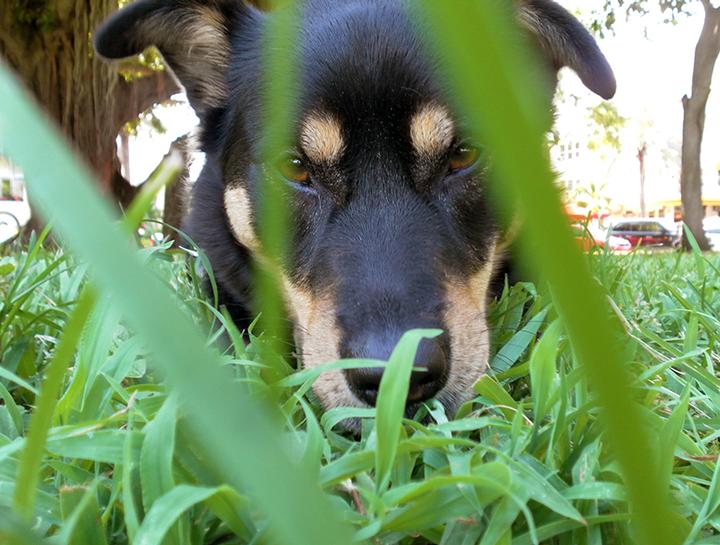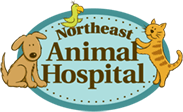Grain-Free and Exotic Ingredient Pet Food Diets

Update: For an explanation of the latest findings of the FDA (U.S. Food and Drug Administration), including a list of pet food brands linked to heart disease, click here.
Update: Please read our blog post of December 13, 2019 with some important information you should consider before changing your pet’s food to a raw or homemade diet.
Update: Please view the WSAVA (The World Small Animal Veterinary Association) document for help on Selecting the Best Food for your Pet.
You may have heard recent news reports about grain-free and exotic ingredient diets, and their link to heart disease. The idea is that these diets are superior to those that contain rice, wheat, corn, and other grains, and that exotic ingredients (like kangaroo, fava beans, chickpeas, etc.) will protect dogs from developing allergies.
Many pet owners have, unfortunately, bought into this myth. The fact is that food allergies are very uncommon among pets, so there’s no benefit to feeding pet foods containing exotic ingredients. Not only are exotic ingredients unnecessary, they also require the manufacturer to have much more nutritional expertise to be nutritious and healthy.
Exotic ingredients have different nutritional profiles and different digestibility than typical ingredients, and also have the potential to affect the metabolism of other nutrients. And while grains have been accused on the internet of causing nearly every disease known to dogs, grains are used in pet food as a nutritious source of energy, vitamins, and minerals.
For an initial report on these diets, click here.
What can you do if you’ve been feeding your dog one of these diets?
- Watch for signs of heart disease: weakness, slowing down, difficulty exercising, shortness of breath, coughing, or fainting. Your veterinarian will listen for a heart murmur or abnormal heart rhythm and may do additional tests (or refer you to a veterinary cardiologist) such as x-rays, blood tests, electrocardiogram, or ultrasound of the heart (echocardiogram).
- Change your dog’s diet to one made by a well-known, reputable company and that contains standard ingredients. (See our recommendations below.) Changing to a raw or home cooked diet will not protect your dog from the issue of heart disease (and may increase the risk for other nutritional deficiencies). If your dog does require a home cooked diet or has other medical conditions that require special considerations, be sure to talk to your veterinarian before making a dietary change.
- Ask your veterinarian to test whole blood and plasma taurine levels (although this test does not confirm or rule out cardiac disease). If your dog has been eating a grain-free diet for an extensive period of time, you should consider having a cardiologist perform an echocardiogram (ultrasound of the heart).
The veterinarians at Northeast Animal Hospital recommend pet foods that contain standard ingredients, including grain. Standard ingredients, for example, are chicken, beef, rice, corn, and wheat. We do not recommend pet foods that are “grain-free”.
Our recommended pet food brands are Hill’s, Royal Canin, Purina, Iams, and Eukanuba, all on which animal feeding trials have been performed according to the AAFCO (Association of American Feed Control Officials). For dogs under one year of age, we recommend puppy foods that are formulated for “growth”. For adult dogs, we recommend adult pet foods that are formulated for “maintenance”. (Foods labeled “all stages” are puppy foods.)
Sometimes, the changes we make in pet nutrition advance our knowledge and the health of our pets. In other cases, we can take a step in the wrong direction when the marketing outpaces the science. Hopefully, identifying this current issue will allow us to set a new, more science-based approach to the optimal nutrition of our pets.
Additional Information: Pet Nutrition
